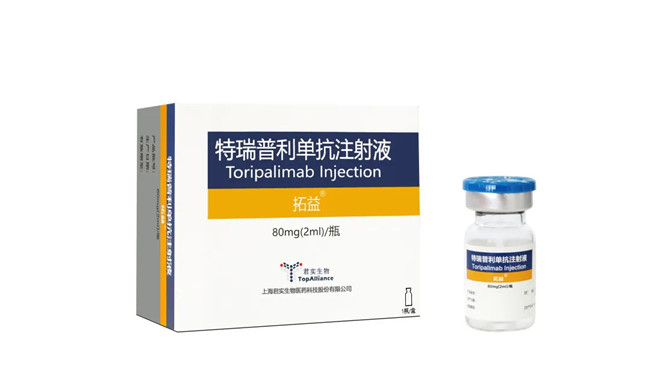US FDA approves new Chinese drug in the treatment of aggressive cancer

Shanghai Junshi Biosciences has gained approval from the United States' Food and Drug Administration for a market launch of a flagship self-developed cancer treatment. [Photo provided to english.pudong.gov.cn]
Shanghai Junshi Biosciences has gained approval from the United States' Food and Drug Administration for a market launch of a flagship self-developed cancer treatment, which experts said marks another milestone of domestic enterprises' innovation and production capacities.
In an online media conference on Monday, Yao Sheng, senior vice-president of Junshi Biosciences, said the company had signed cooperation agreements with foreign partners including Coherus, Hikma, Rxilient Biotech and Dr.Reddy's that cover more than 50 markets, and expects the drug to get greater presence worldwide following the approval from the US FDA.
The Chinese biotech and its US partner Coherus BioSciences Inc jointly announced on Oct 27 that the US FDA approved Loqtorzi (toripalimab-tpzi) in combination with other drugs for the first-line treatment of adults with metastatic or recurrent locally advanced metastatic nasopharyngeal carcinoma (NPC), and as monotherapy for the treatment of adults with recurrent, or metastatic NPC with disease progression on or after platinum-containing chemotherapy.
NPC is an aggressive cancer that starts in the nasopharynx, the upper part of the throat behind the nose and near the base of skull. Due to the location of the primary tumor, surgery is rarely an option, and patients with the localized disease are treated primarily with radiation and chemotherapy.
Loqtorzi is the first US FDA-approved agent for NPC patients, and is a next-generation, programmed death receptor-1 monoclonal antibody, commonly known as PD-1 antibody.
PD-1 therapeutics revolutionizes cancer treatment as they enable the immune system to activate and kill the tumor.
Since late 2018, a group of Chinese biotech companies have joined a global team of organizations who have come up with homegrown PD-1/PD-L1 inhibitors. Junshi Biosciences was the first to nab China's first approval for a homegrown PD-1 inhibitor.
"The approval of the homegrown antibody is the first of its kind for treating NPC in the US, and that's a milestone for China's innovative medicine industry," said Xu Ruihua, president of Sun Yat-sen University Cancer Center, and the principal investigator of the drug.
"In the field of NPC treatment, China has a leading position, and the drug has demonstrated our innovations in treating cancer in the field of internal medicine," he added.
According to a press release from the companies, Jong Chul Park, assistant professor at Harvard Medical School and attending physician at the Center for Head and Neck Cancers at Massachusetts General Hospital Cancer Center, said that the drug, a new treatment option demonstrating the ability to significantly improve progress-free survival and overall survival of patients, should quickly emerge as the new standard of care when used in combination with chemotherapy.


 China's public holidays for 2025
China's public holidays for 2025  Shanghai FTZ: Go all out to build China's first pilot zone for Silk Road E-commerce cooperation
Shanghai FTZ: Go all out to build China's first pilot zone for Silk Road E-commerce cooperation  Favorable policies boost 'China Travel' trend
Favorable policies boost 'China Travel' trend  play
play 